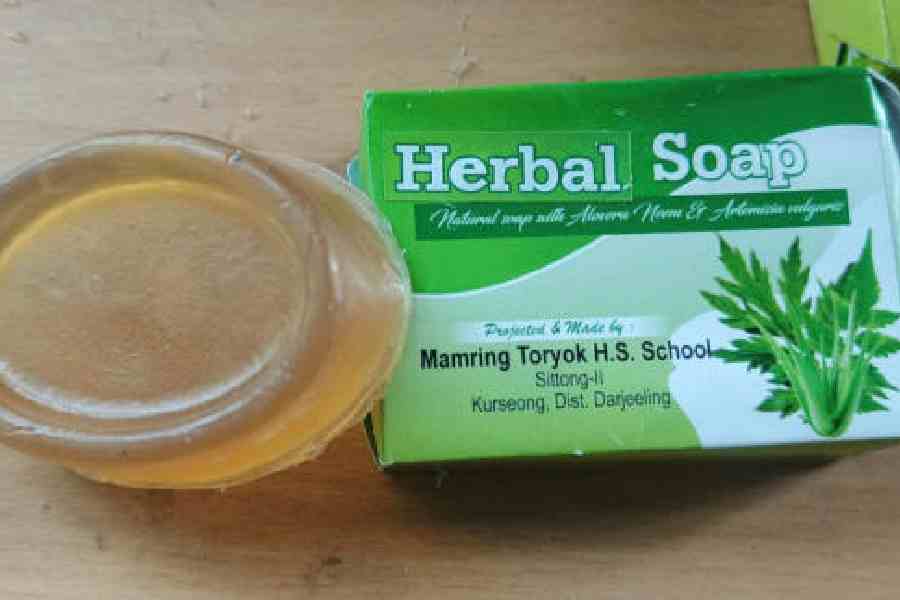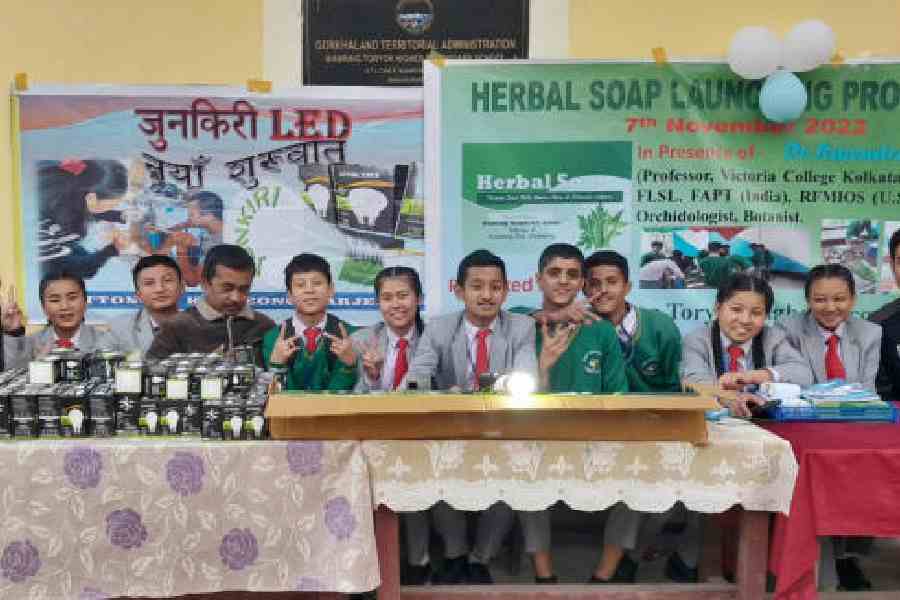The Mamring Toryok Higher Secondary School, a government school in rural Kurseong in Darjeeling district, is being built by teachers who are refusing to add just “another brick in the wall".
Students of this school at Lower Mamring, which is some 22km from Kurseong town, are being encouraged to make a variety of items, ranging from herbal soaps and a smart greenhouse to digital clock, automatic egg incubator, eco-bricks, LED bulbs and a prototype excavator.
The school has also set up a butterfly park, a kitchen garden with medicinal plants and a herbal garden.
"We do not want the students to be another brick in the wall. We want to unleash the talents of the kids and also train them in real-life skills while in school,” said principal Kiran Lama.
"Another brick in the wall" by the famous English rock band Pink Floyd is considered a protest anthem against rigid education.
It can safely be said that the Mamring Toryok Higher Secondary School imparts anything but rigid education to its 320 students. In fact, many schools in metros can learn a lesson or two from it.
Five years ago, the school decided to form eight clubs — technology and business, agriculture and floriculture, library, economic and political science, games and sports, culture, music and waste management.

the herbal soap they made
"The students have to choose one club and every Friday the children are engaged in club activities throughout the day,” said Passang Sherpa, assistant headmaster, who is in charge of the agriculture and floriculture club.
Teacher Kamal Rasaily is the driving force behind the school’s innovative technology forays.
"I have always been fascinated by technology. It's great that we have managed to come up with many innovations,” said Rasaily.
During the Covid period, the school designed its sensor-based sanitiser unit. “One of our sanitiser units was purchased by a school in Kurseong,” said Rasaily.
The automatic greenhouse controls parameters like temperature and humidity through a mobile phone. The automatic egg incubator needs little human intervention.
The school sells its herbal soaps made of aloe vera, neem and mugwort.
“Nearby homestays purchase our soaps. We have also sold our LED bulbs. We made a profit of around Rs 36,000 and used the amount to help students from financially weak backgrounds,” said Lama.
Small wonder that many school alumni have started their own businesses.
“One of our alumni members has started a small-scale LED manufacturing business,” said another teacher.
Many rural students are taking up hydroponics, a technique of growing plants using a water-based nutrient solution rather than soil.
Each student also has to collect 10 plastic wrappers in a week that are then used to make eco-bricks.
“This small endeavour also goes a long way in helping the village stay clean,” said Lama.
All these extracurriculars have not affected academics.
“Our school, set up in 1983, has no history of anyone failing the Class X or XII board exams,” said teacher Janardhan Sharma.
The school was established in 1983. It was upgraded to a junior high school in 1997, a high school in 2011 and a higher secondary school in 2017.
The school stood first in the science fair held by the Gorkhaland Territorial Administration in 2019 and the Swachh Vidyalaya Award (cleanest school award) in 2022.










